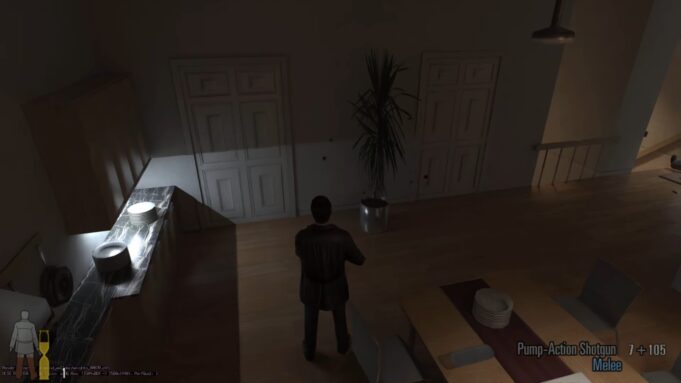But beauty, in this case, comes at a steep price. The aforementioned MxBenchmarkPC’s testing reveals a truly shocking performance drop. An RTX 5080, running at 4K with DLSS Performance Mode, plummeted from a blistering 1255 FPS in the vanilla game to a paltry 38 FPS with the mod enabled. That’s a loss of over 1200 frames per second. Ouch.
Only with Frame Generation enabled did the modded game claw its way back to playable framerates, hovering just above 60 FPS. This highlights a crucial reality: path tracing, while visually impressive, remains incredibly demanding on hardware.
The Max Payne 2 RTX Remix mod isn’t alone in its performance woes. Similar RTX Remix projects for the original Max Payne, the Half-Life remake Black Mesa, and Left 4 Dead 2 all exhibit similar performance cliffs. The pattern is clear: brute-forcing path tracing onto older titles simply isn’t viable without significant optimization.
This underscores the importance of careful optimization and reliance on upscaling technologies like DLSS and Frame Generation. Games like Alan Wake 2 and Cyberpunk 2077 demonstrate how path tracing can shine when properly integrated and optimized from the ground up.
Despite the current performance hurdles, RTX Remix mods represent a promising avenue for breathing new life into classic games. While official remasters may be uneven – consider the Grand Theft Auto remasters – the modding community can step in and deliver visually stunning experiences, even if they require cutting-edge hardware. For example, a Grand Theft Auto 4 remaster is unlikely to get path tracing support, making mods the only option for those who want to see Liberty City in all its ray-traced glory.
Ultimately, the Max Payne 2 RTX Remix mod serves as a tantalizing glimpse into the future of game remasters. As hardware continues to evolve and optimization techniques improve, these ambitious projects will become more accessible, allowing a wider audience to experience classic games in a whole new light (literally).


